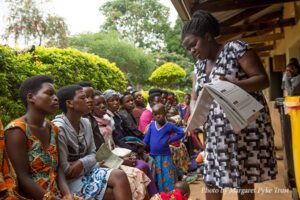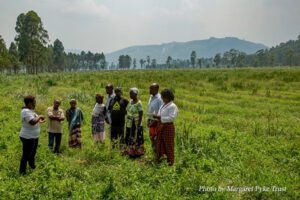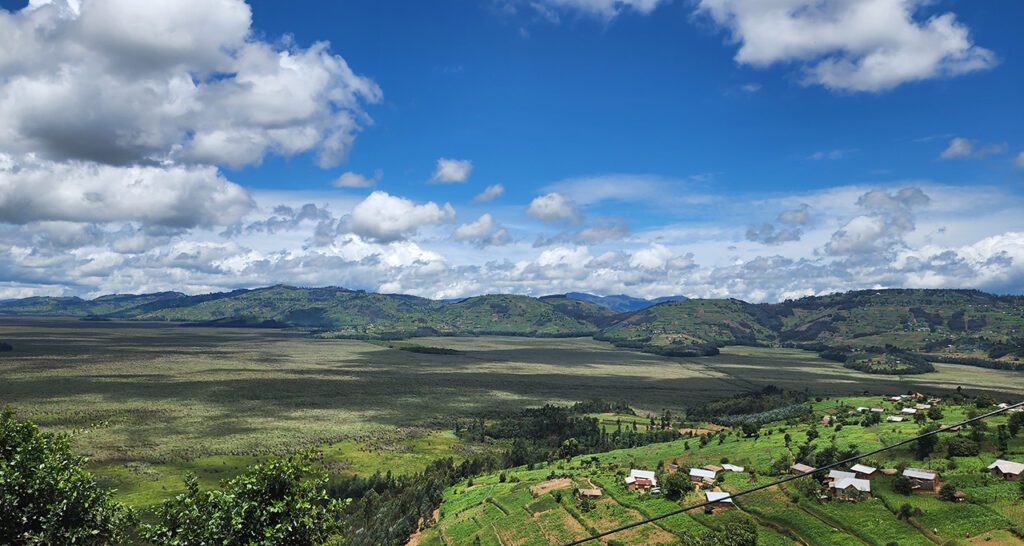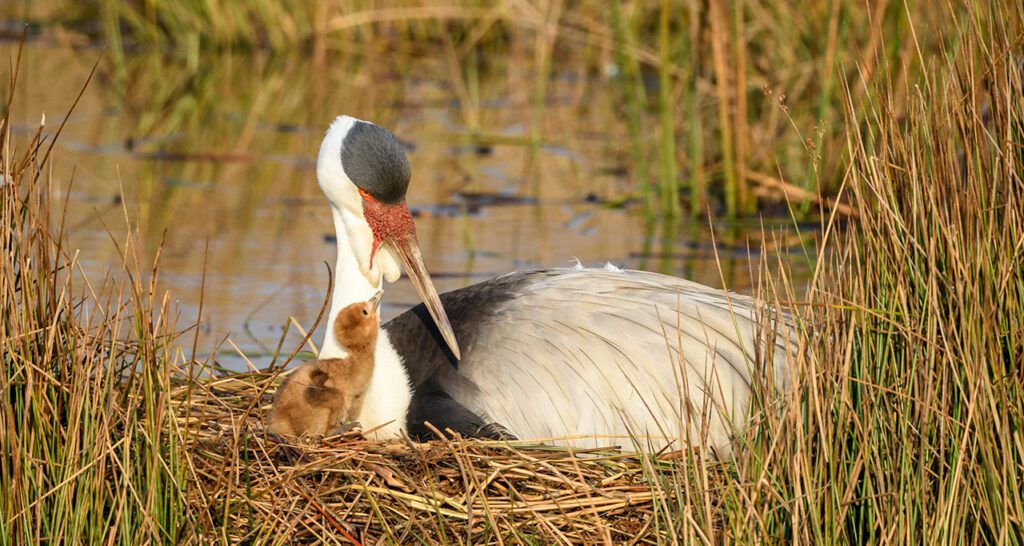New project announcement for south western Uganda!
Media contacts: Kerryn Morrison, VP International: Director of Africa, International Crane Foundation, Tel: +27 82 877 5126 | David Johnson, Chief Executive, Margaret Pyke Trust, Tel: +44 7481 411117
This World Population Day, we are proud to announce the start of a new project focussed on improving human and environmental health, by ensuring that healthy wetlands are available to the people and the Endangered Grey Crowned Cranes of Uganda’s Rukiga District. The Endangered Wildlife Trust, the International Crane Foundation, the Margaret Pyke Trust and Rugarama Hospital are working with local stakeholders to provide the sustainable alternative livelihoods and family planning information and services that local women and men have lobbied for. By combining this work with wetland restoration and other conservation actions, we can encourage long-term health for both the wetlands and the people that rely on them for their water, food and livelihoods.
World Population Day has been marked every year since July 11, 1987, the day the United Nations Population Fund chose as the symbolic “Day of Five Billion”. In the 33 years since the global population has risen from 5 billion to 7.8 billion people. These population statistics will gain coverage today, but of more importance to us, our project partners and the people of Rukiga District, are these less well-known statistics:
28% of married Ugandan women of reproductive age want to stop having children or delay having children, but are not using contraception. This is because they face barriers to exercising their right to family planning. We want them to be able to exercise that right should they choose to do so.
87% of global wetlands have been lost in the last 300 years, and Uganda’s wetland cover has reduced by 30% in the last two decades. The livelihoods of one billion people, including those in the Rukiga District, rely on these increasingly threatened wetlands. We must conserve these wetlands, which are critical for food and water security, biodiversity, flood prevention, water resource management and as a carbon sink.
In the last 20 years, the number of Grey Crowned Cranes has fallen by up to 80%. To conserve Uganda’s National Bird, we must conserve the wetland habitats in which they nest, because wetland loss and fragmentation are the most prevalent reasons for the decline in numbers.

The project has been developed over two years, working closely with local people, and building a partnership responding to the connected challenges resulting from human pressures on wetlands. Sarah Uwimbabazi is the Margaret Pyke Trust’s nurse managing the project’s family planning training. She explained, “Barriers to family planning are the obstacles preventing women and girls from accessing contraception. In Rukiga District, these barriers range from the limited access to reproductive health information to the long distances people must walk to reach clinics, contraceptive myths, the negative attitudes of men, and a lack of trained nurses. Our project’s clinical outreach and family planning training and public education will respond to these challenges.”

The International Crane Foundation / Endangered Wildlife Trust Partnership’s community education specialist, Phionah Orishaba, explained further, “Restricted access to family planning means unintended pregnancies and greater infant and maternal health issues. But a woman with choice can decide if and when to have children and can take up livelihood opportunities, having a more secure future. The cranes are very important to local people, and we know they need the wetlands to nest, but there are few jobs, and often little choice other than draining wetlands to grow food. We knew we needed to do more than wetland restoration, soil conservation and other traditional conservation actions, so we listened to the communities’ livelihood and health needs and our partnership grew as a result.”
Dr. Gilbert Mateeka, the medical superintendent of Kabale’s Rugarama Hospital, explained, “Few men attend community health talks, but by integrating our health messages with our conservation partners’ livelihood and conservation training, we believe we can get men more involved with and supportive of family planning. This is one of many benefits of working across sectors. The community sees the connections between human health and environmental health, poverty and livelihoods every day, so we listened.”
This project has been made possible because of the financial support of the UK Government’s Department for Environment, Food and Rural Affairs through “The Darwin Initiative.” There is a quickly growing movement of organizations understanding that barriers to family planning are not only relevant to improving health and wellbeing, gender equality and empowerment but also to the conservation of biodiversity, climate change and sustainability. We are proud to be part of this movement and are grateful that the Darwin Initiative similarly has made the connections.


